Environmental Service
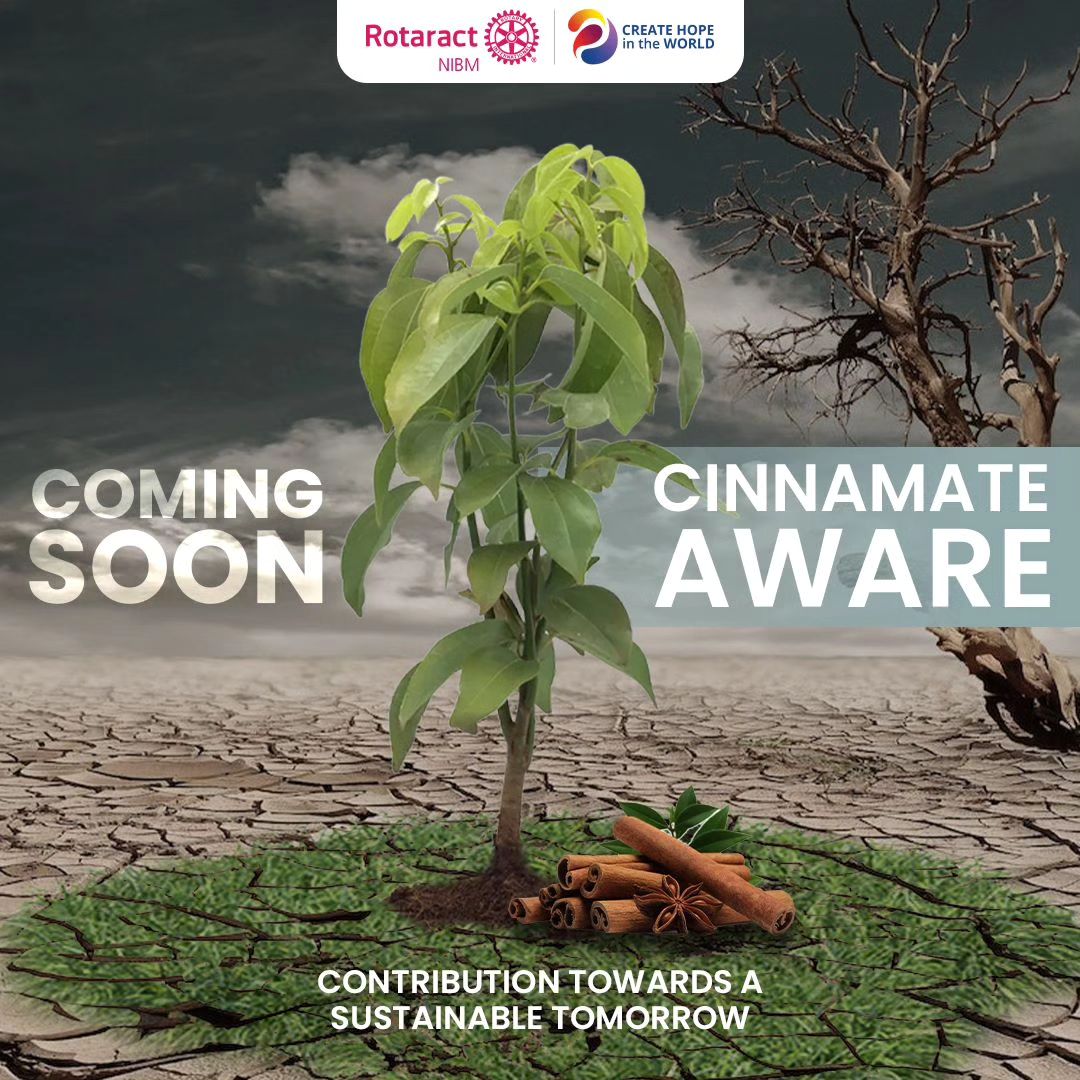
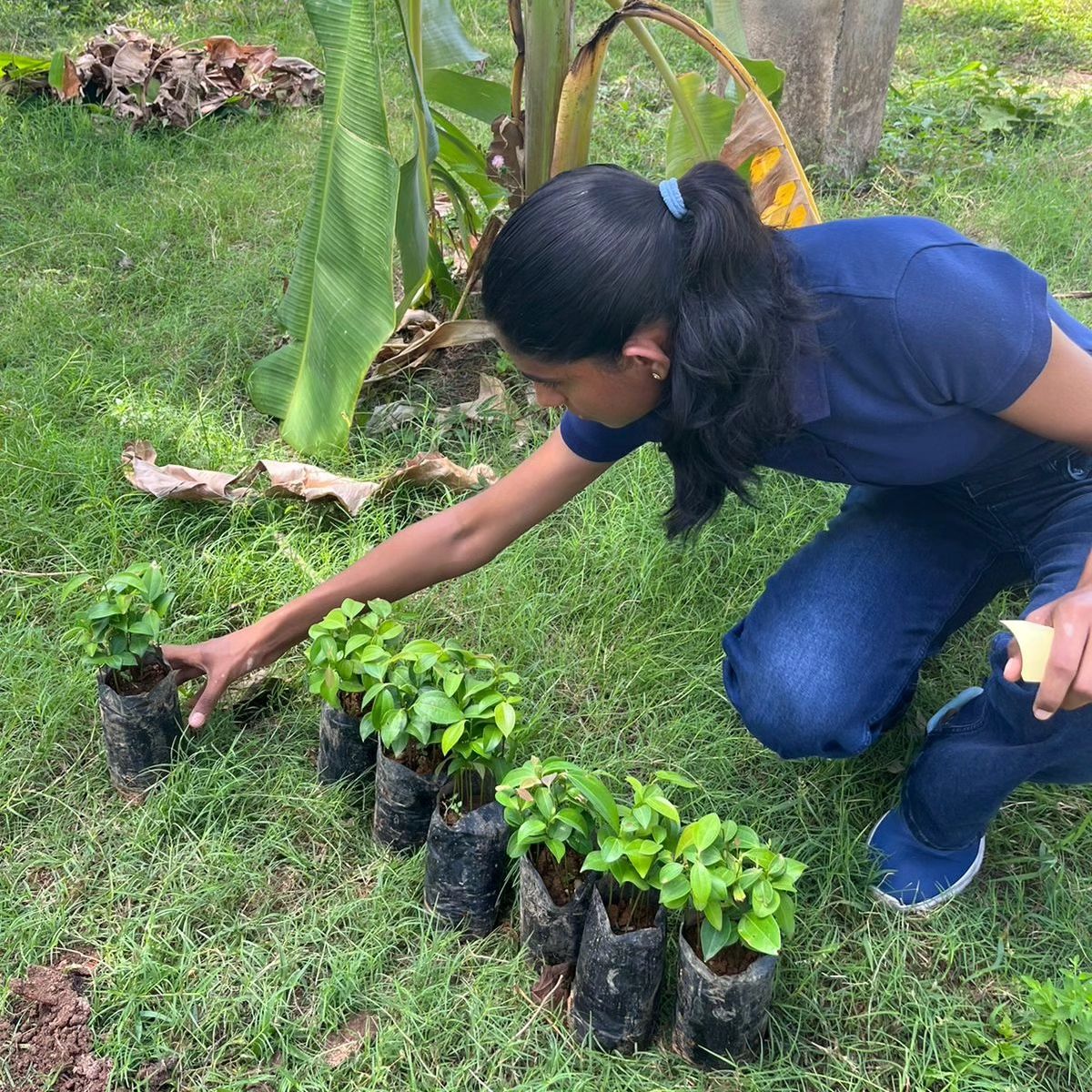
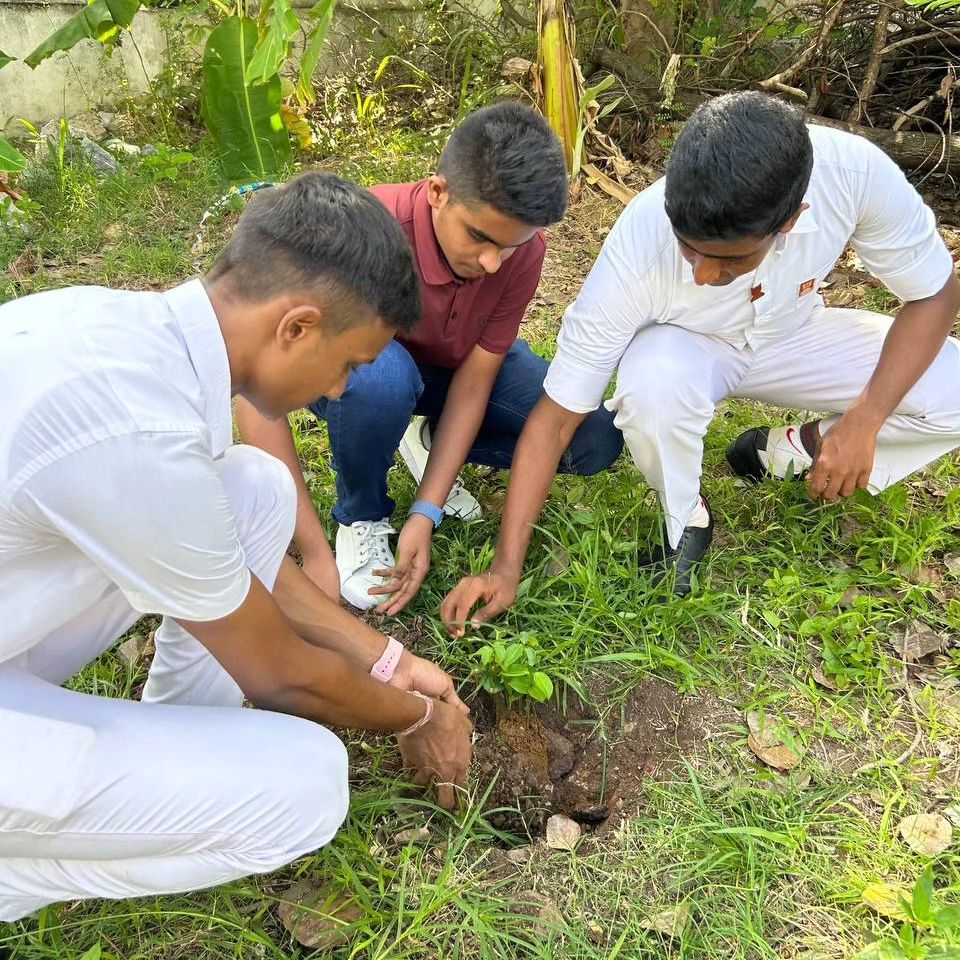
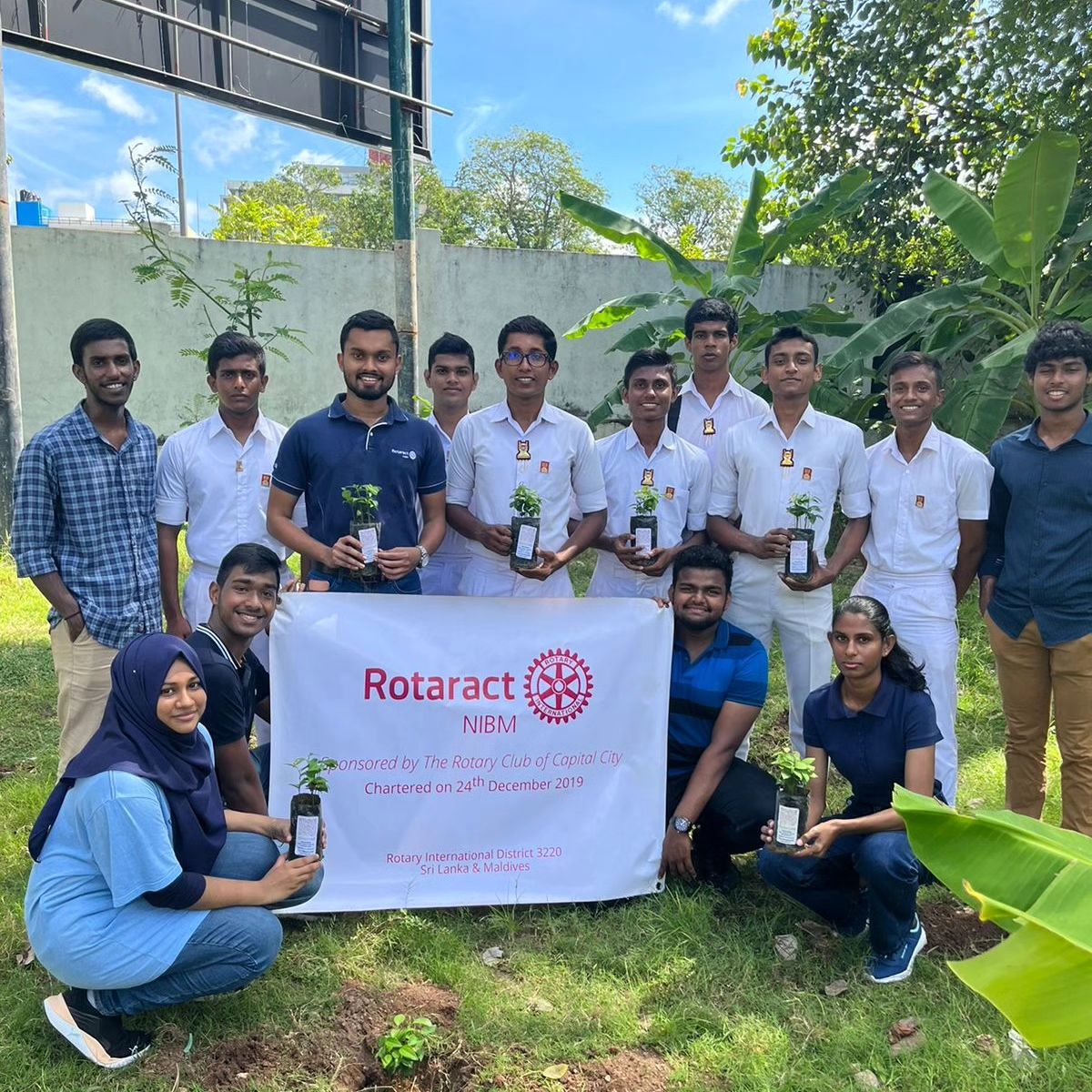
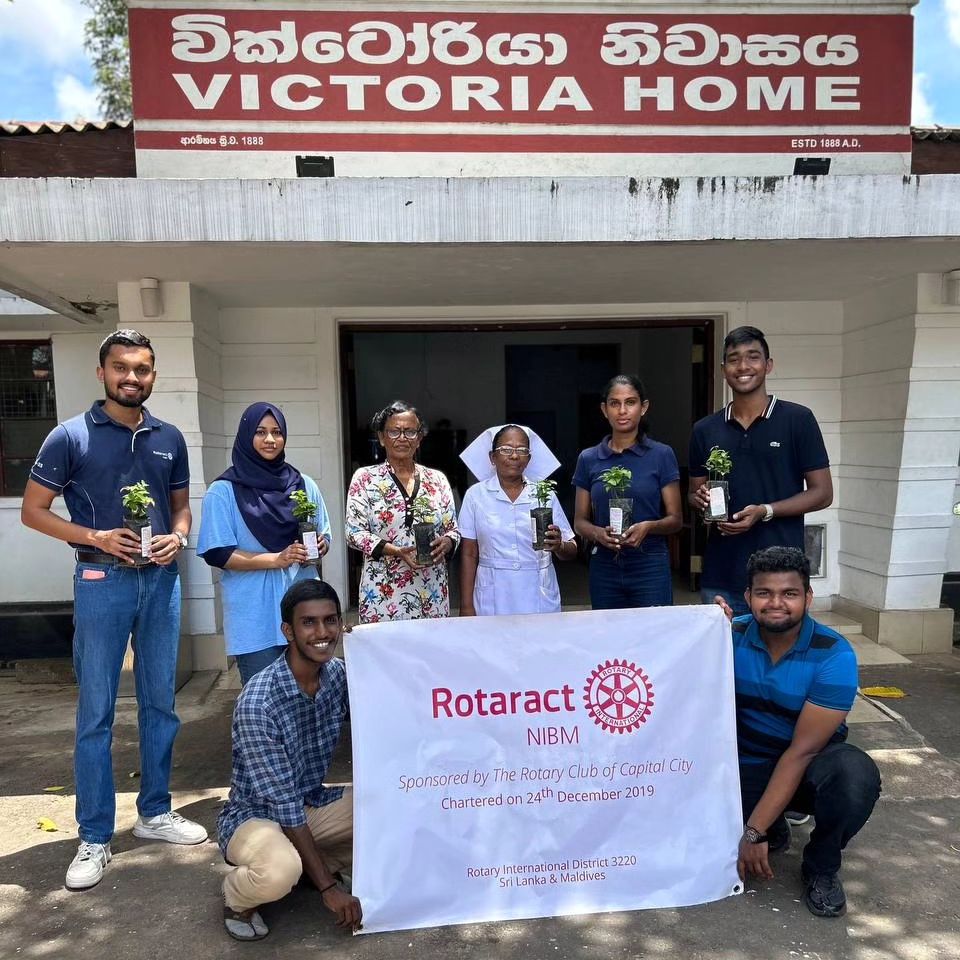
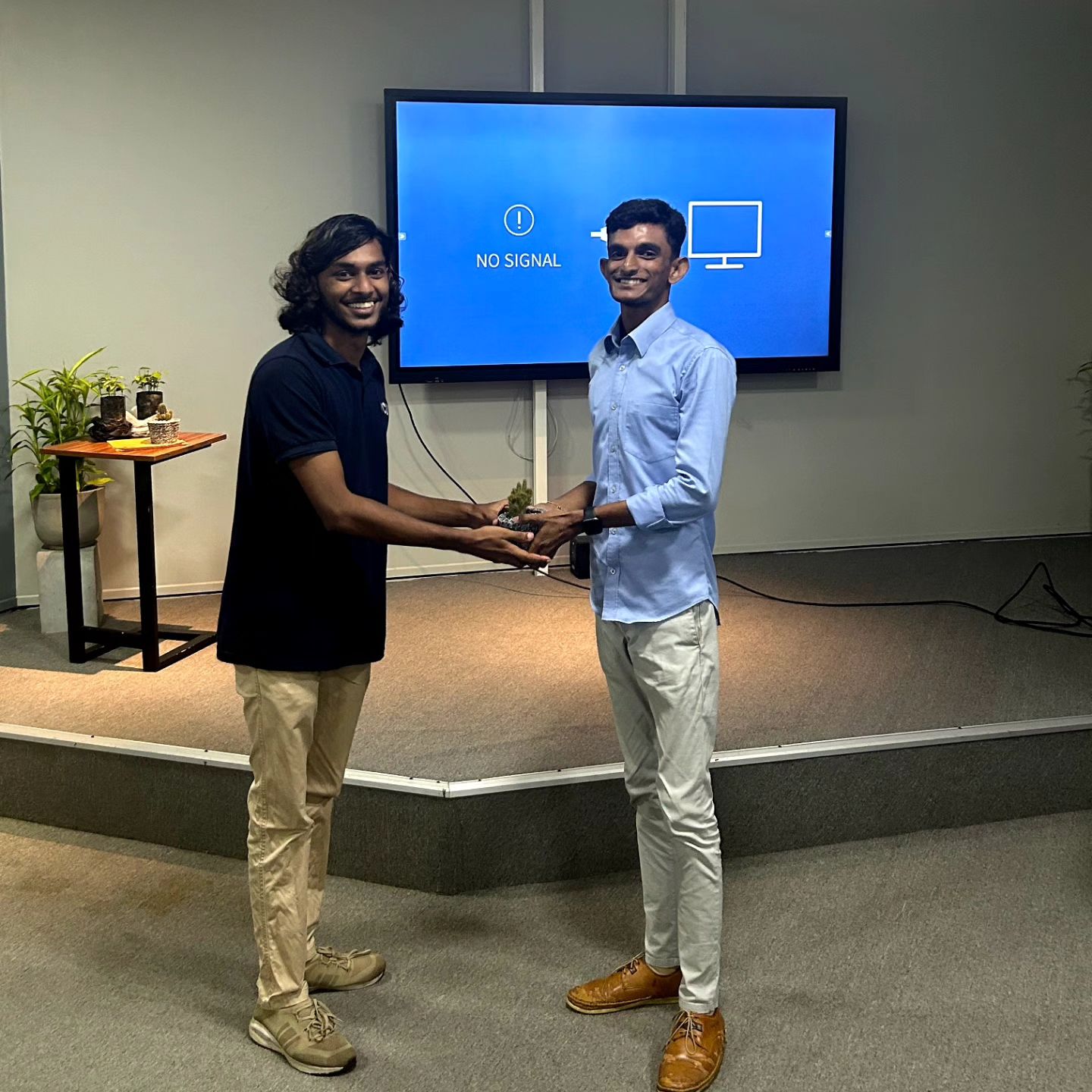
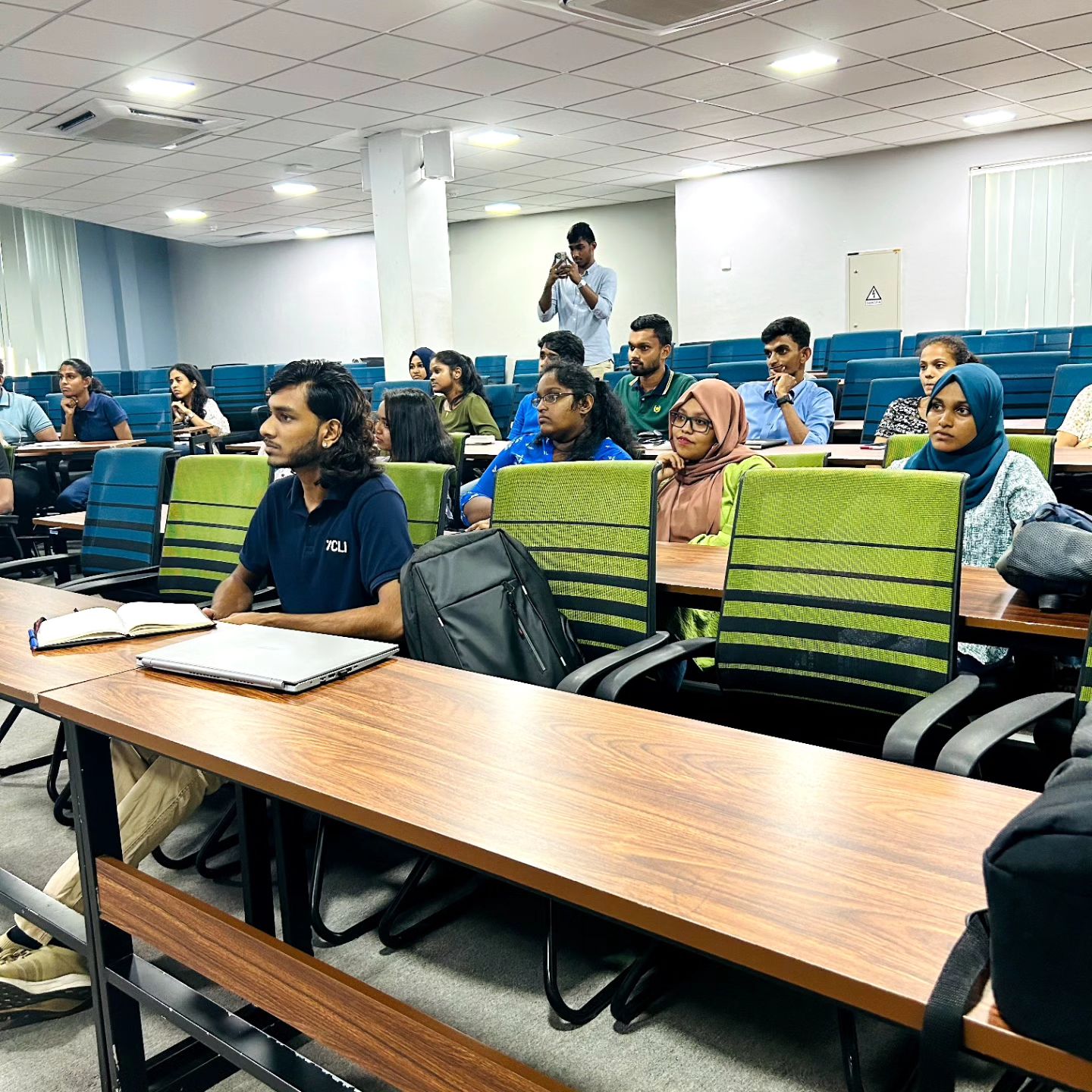
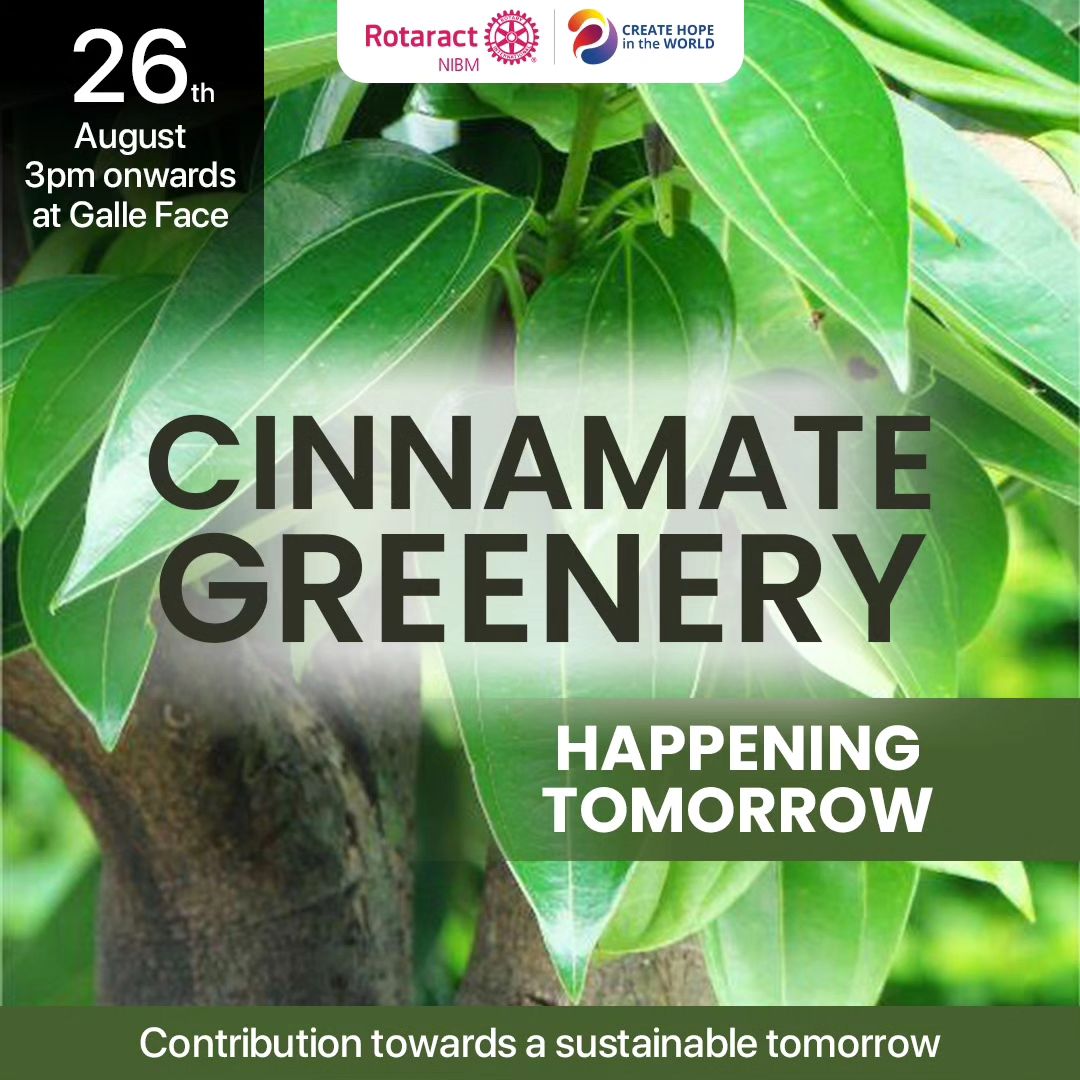
CINNAMATE
Phase 1 – Cinnamate Aware was an initiative that sought to raise awareness about the issue of climate
change and its consequences. We organized an awareness session featuring speakers Mr. Methsara
Beneragama (Startup Entrepreneur, certified executive resume writer, CV writer, Volunteer focusing SDG8,
13 and 17, public speaker) and Mr. Lenin Indra De Silva (Marine researcher, Research Lead of the
Pearlprotectors, President of marine Environmental conservation society Sri Lanka, Cofounder of Voice for
Climate Change Sri Lanka, Honorary Director of Alliance for Aquatic Research and conservation, Early
career Ocean Professional). The name “Cinnamate Aware” was inspired by the combination of the words
“cinnamon” and “aware,” reflecting our dedication to spread knowledge about climate change.
As part of our mission, we distributed cinnamon plants to the public symbolizing our shared responsibility in
combating climate change. During the awareness session our speakers shed light on the importance of
focusing on climate change and its ranging effects. We delved into how climate change impacts animals
emphasizing the need for action.
Sustainability was a principle throughout this project. We discussed guidelines, for addressing climate
change empowering individuals to make conscious choices. By fostering an understanding of climate change
and its implications Cinnamate Aware aimed to inspire changes and contribute towards a more sustainable
future.
Phase 2 – Cinnamate Greenery was a remarkable initiative with a simple yet powerful mission: to fight
climate change one cinnamon plant at a time. Cinnamon plants, chosen for their unique ability to combat
climate change, possess herbal properties, are easy to grow, and budget friendly. Our goal was to distribute
these incredible plants to raise awareness about the urgent need for climate action.
We kicked off our awareness campaign with an enlightening session that aimed to answer the burning
question: “Why cinnamon plants?” The answer was clear – these plants not only symbolize our commitment
to the environment but also contribute actively to the fight against climate change.
Within 2 weeks of time after the first session, a total of 200 cinnamon plants found their new homes in
schools with available space for tree planting, the public, the lovely residents of Victoria Elderly Home,
dedicated club members, and our respected lecturers also contributed to planting cinnamon plants.
To ensure the sustainability of our project, we took an innovative approach. Each plant was tagged with a
QR code linked to our Instagram club page, allowing everyone to track and share the growth of cinnamon
plants.
Cinnamate Greenery is more than just distributing plants; it is a collective effort to combat climate change
and create a greener, healthier planet for generations to come. With each cinnamon plant, we take one step
closer to a sustainable future.
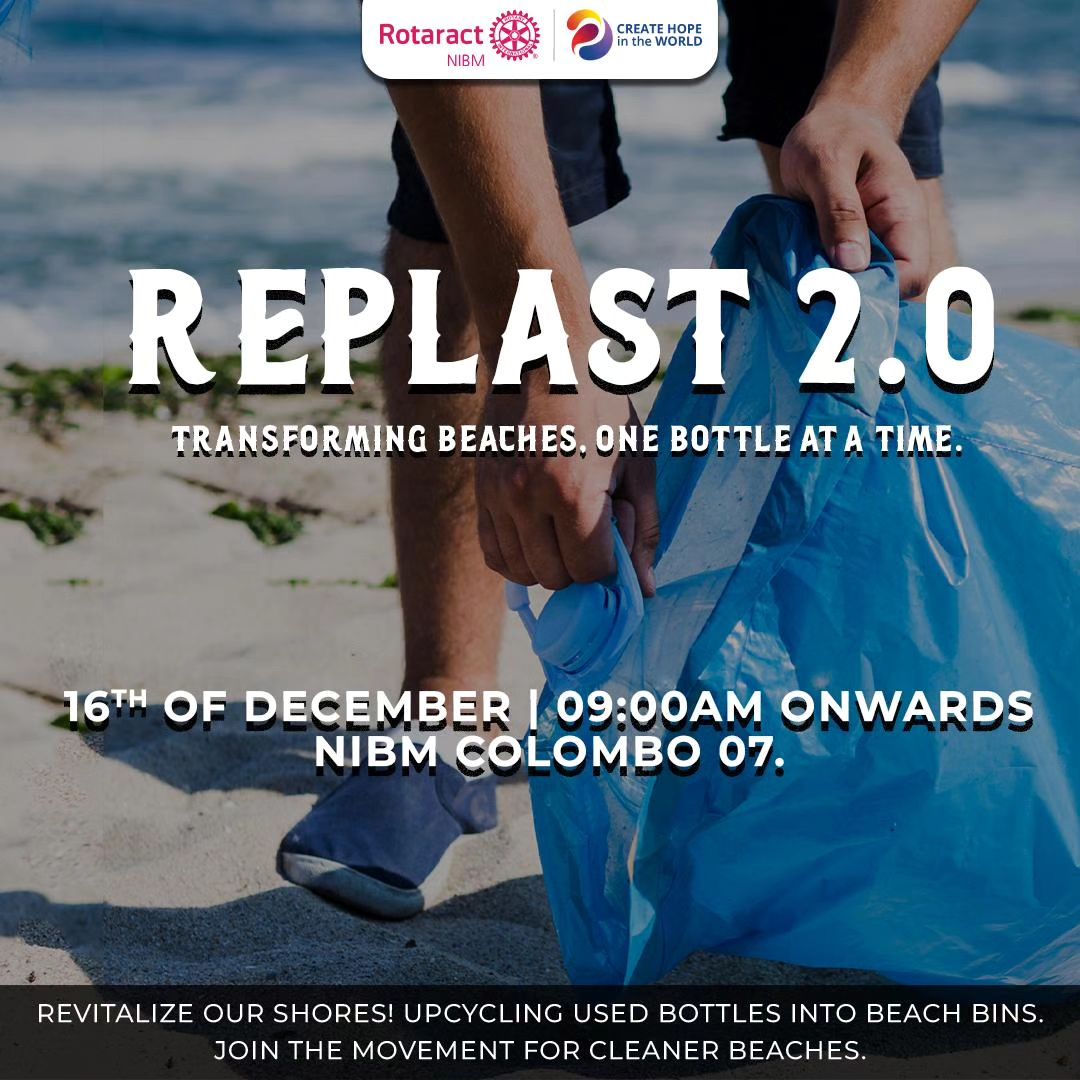
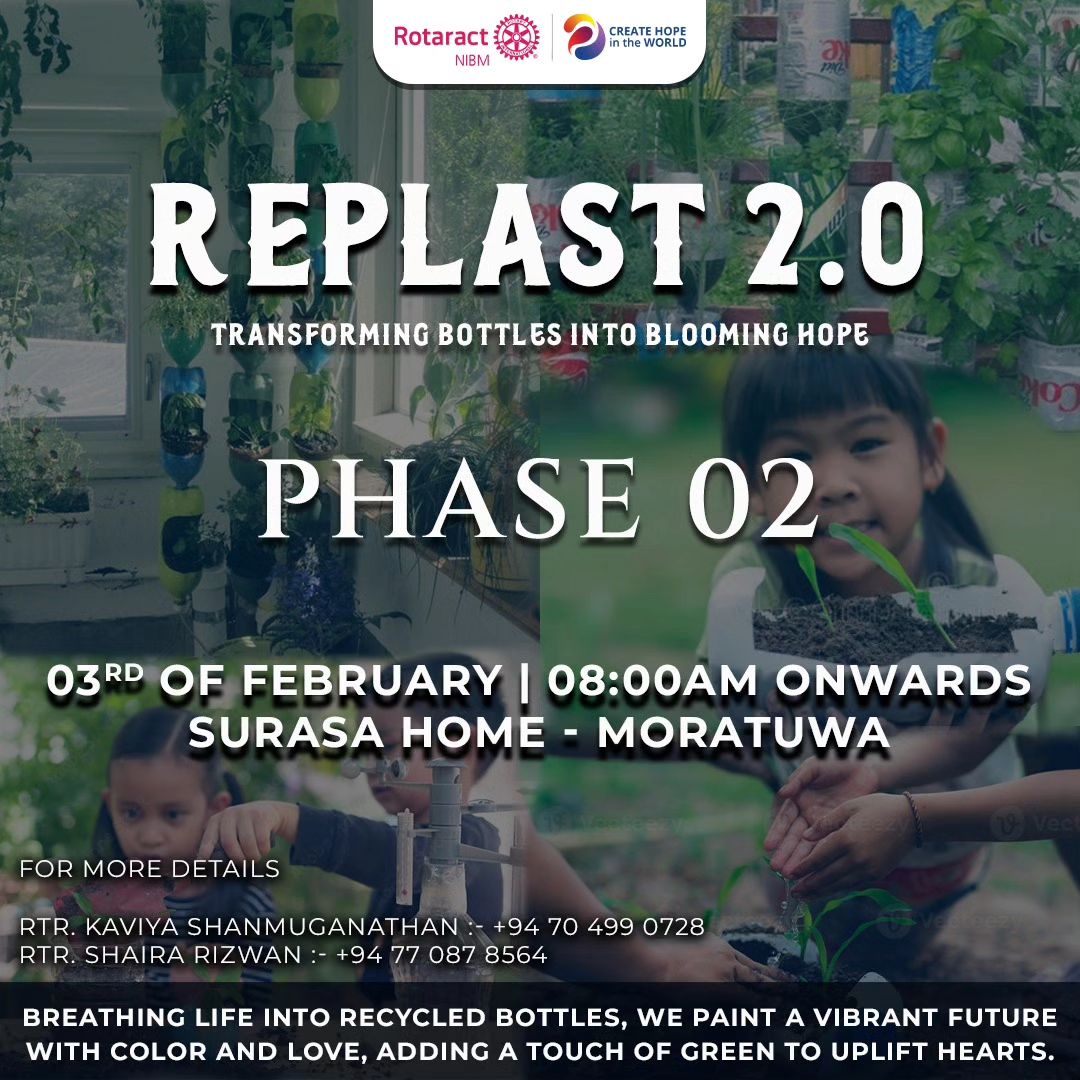
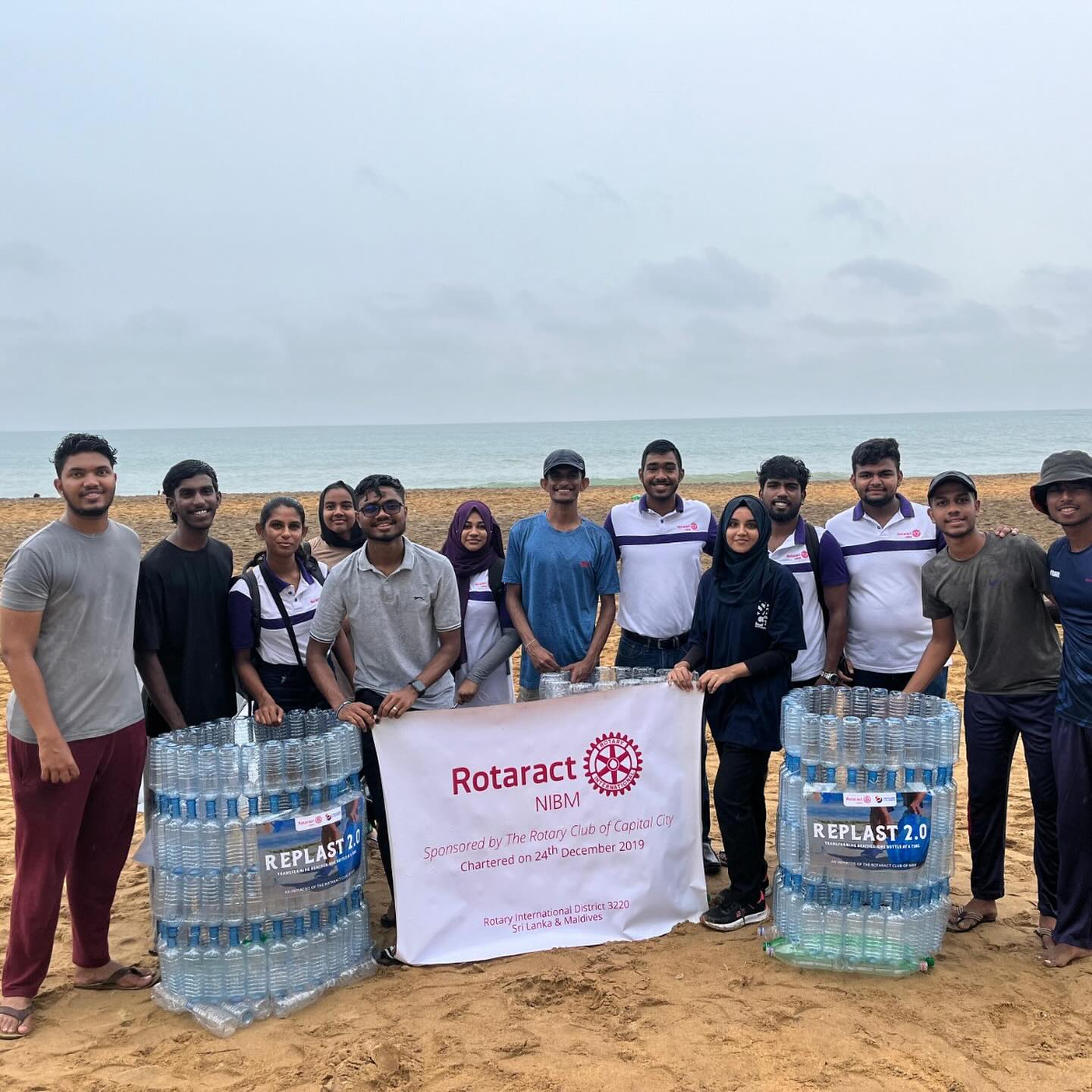
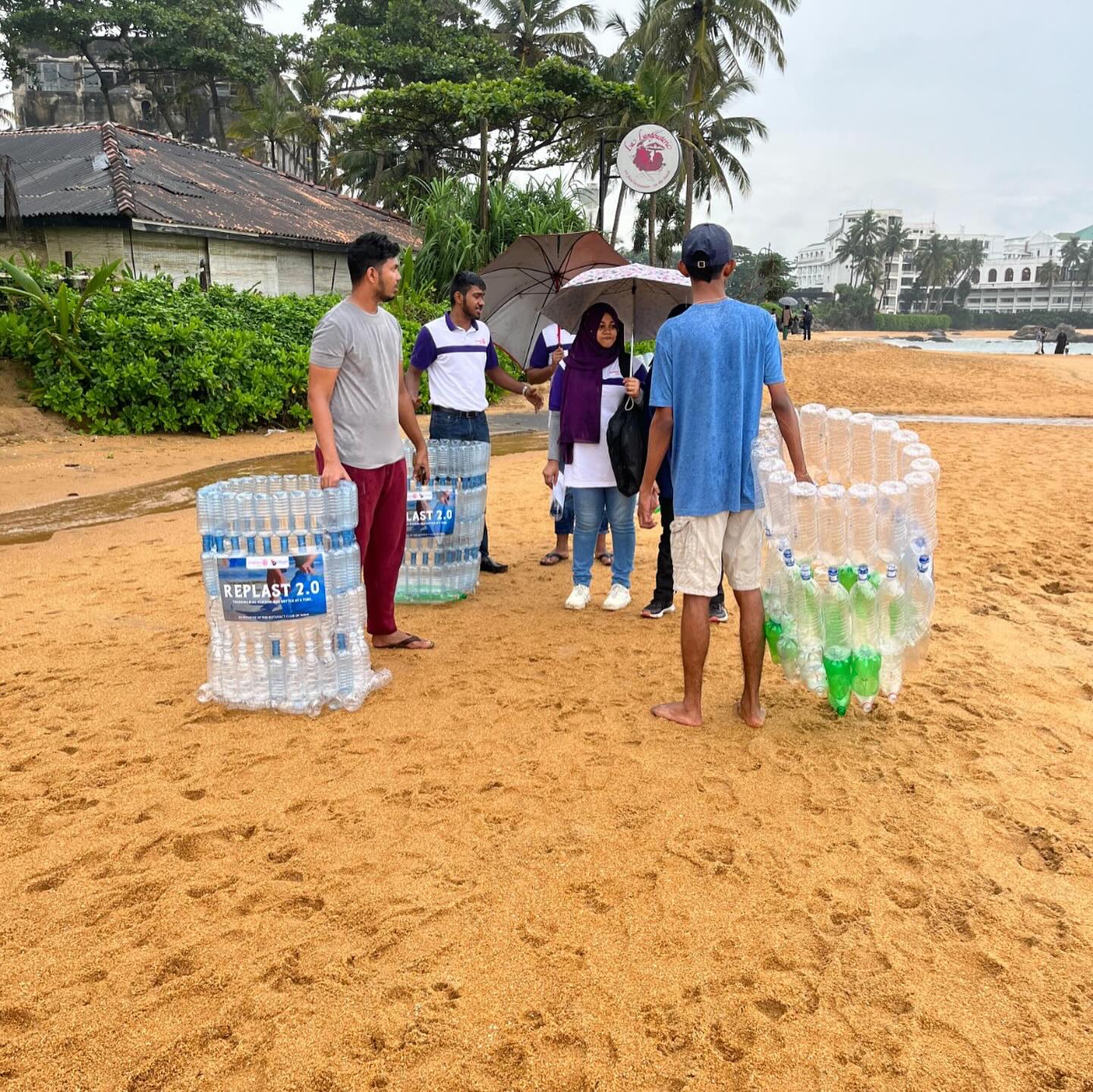
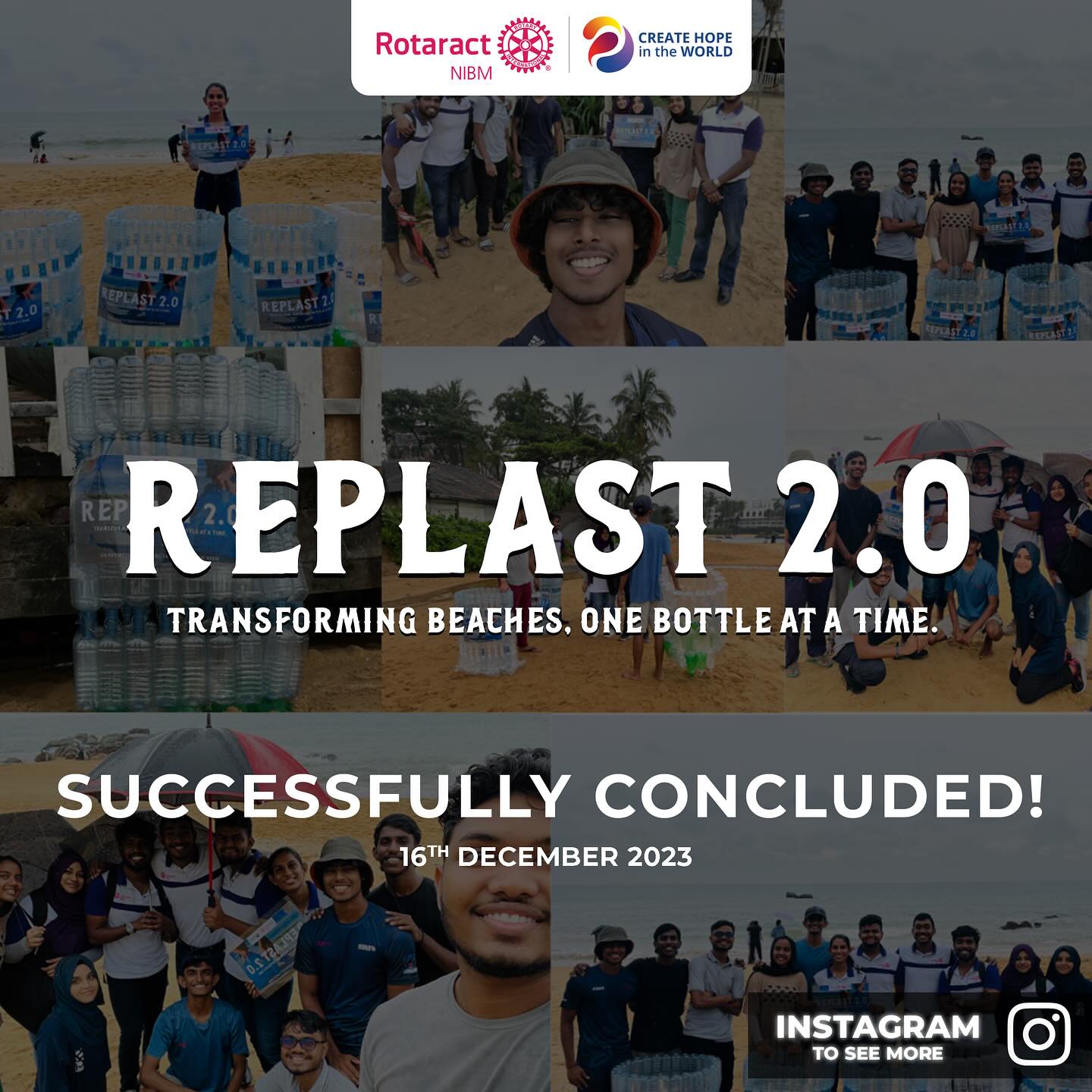
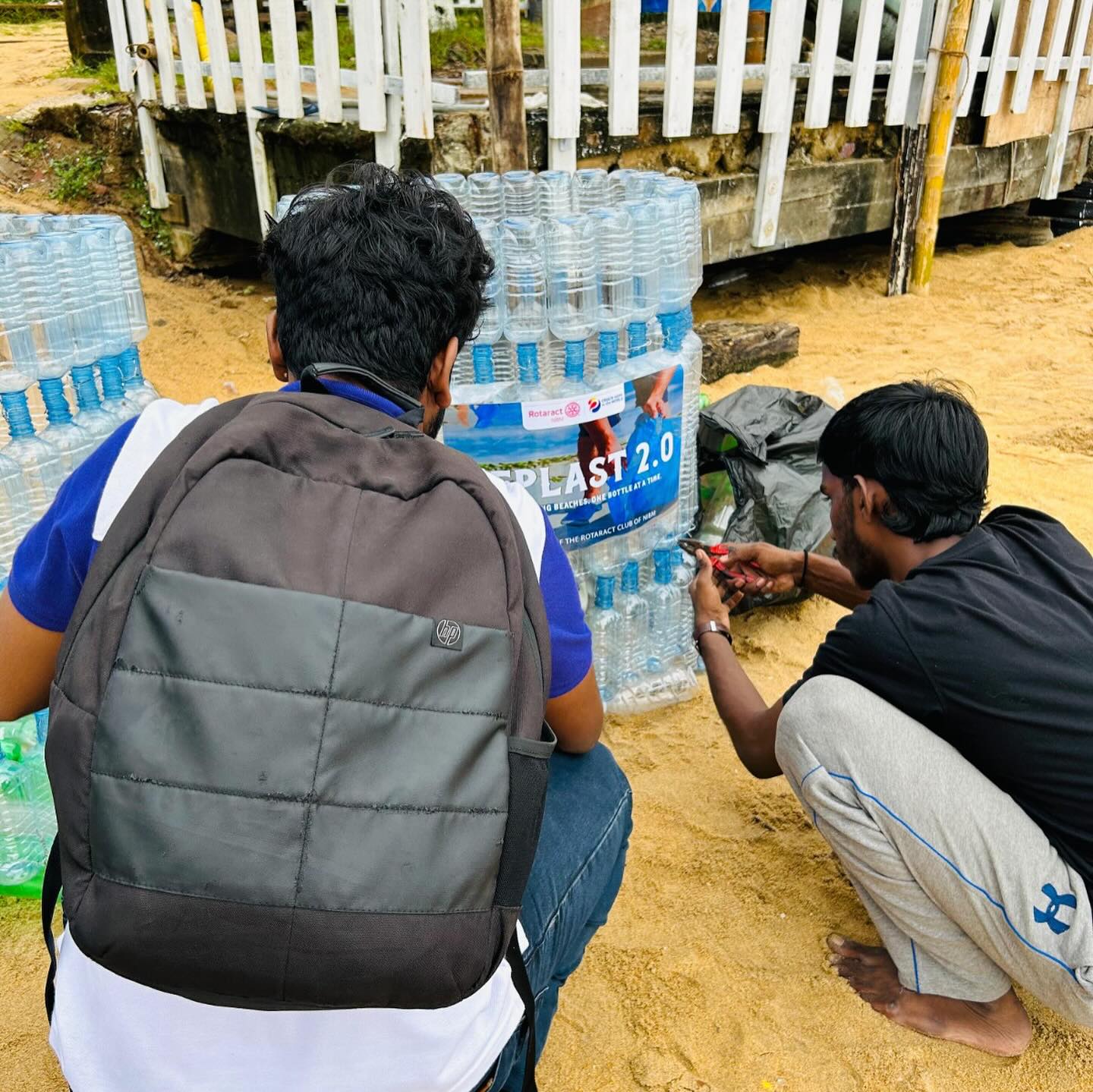
REPLAST 2.0
Replast Phase 01 -The Replast Phase One project introduces a new approach to using plastic bottles and bins. It aims to lessen
plastic waste in the environment and raise awareness about plastic usage. In this project, we repurposed 1000
plastic bottles to create five large bins placed on Mount Lavinia Beach. This helps reduce the harmful effects
of plastic on the environment. We chose Mount Lavinia Beach because it is vast and lacked enough bins,
leading to littering. By installing bins, people can now dispose of trash properly. This initiative encourages
responsible waste disposal and keeps the beach clean. In addition to reducing plastic waste and promoting
awareness, the Replast Phase One project serves as a model for sustainable innovation. By repurposing
plastic bottles into functional bins, we showcase the creative potential of recycling materials. Moreover, the
project fosters community engagement by involving local residents in the installation and maintenance of the
bins. This not only empowers individuals to take ownership of their environment but also builds a sense of
collective responsibility towards preserving natural spaces. Furthermore, the project sparks conversations
about the broader issue of plastic pollution and inspires individuals to seek alternative solutions in their own
communities. Through education and action, we aim to create a ripple effect of positive change that extends
beyond Mount Lavinia Beach to other coastal areas and beyond.
Phase 02 -Replast Phase Two is about getting inventive with plastic bottles. We made flowerpots of various sizes from
these bottles. We also made a big dustbin and gave it to Surasa Home in Moratuwa. Additionally, we
organized a cleanup event, called “sharamadhana,” to tidy up their garden. As part of this effort, we planted
cinnamon plants. This project is important because it shows how we can reuse plastic bottles creatively
instead of just throwing them away. By making flowerpots and a dustbin, we are giving these bottles a new
purpose and helping to reduce waste. Donating the dustbin to Surasa Home helps them keep their
surroundings clean, and the cleanup and planting activities improve the environment for the residents.
Overall, Replast Phase Two highlights the importance of recycling and finding innovative ways to tackle
plastic pollution while also making a positive impact on our communities.